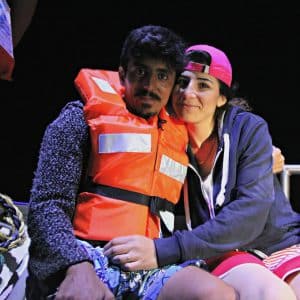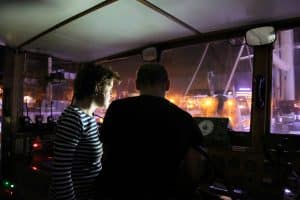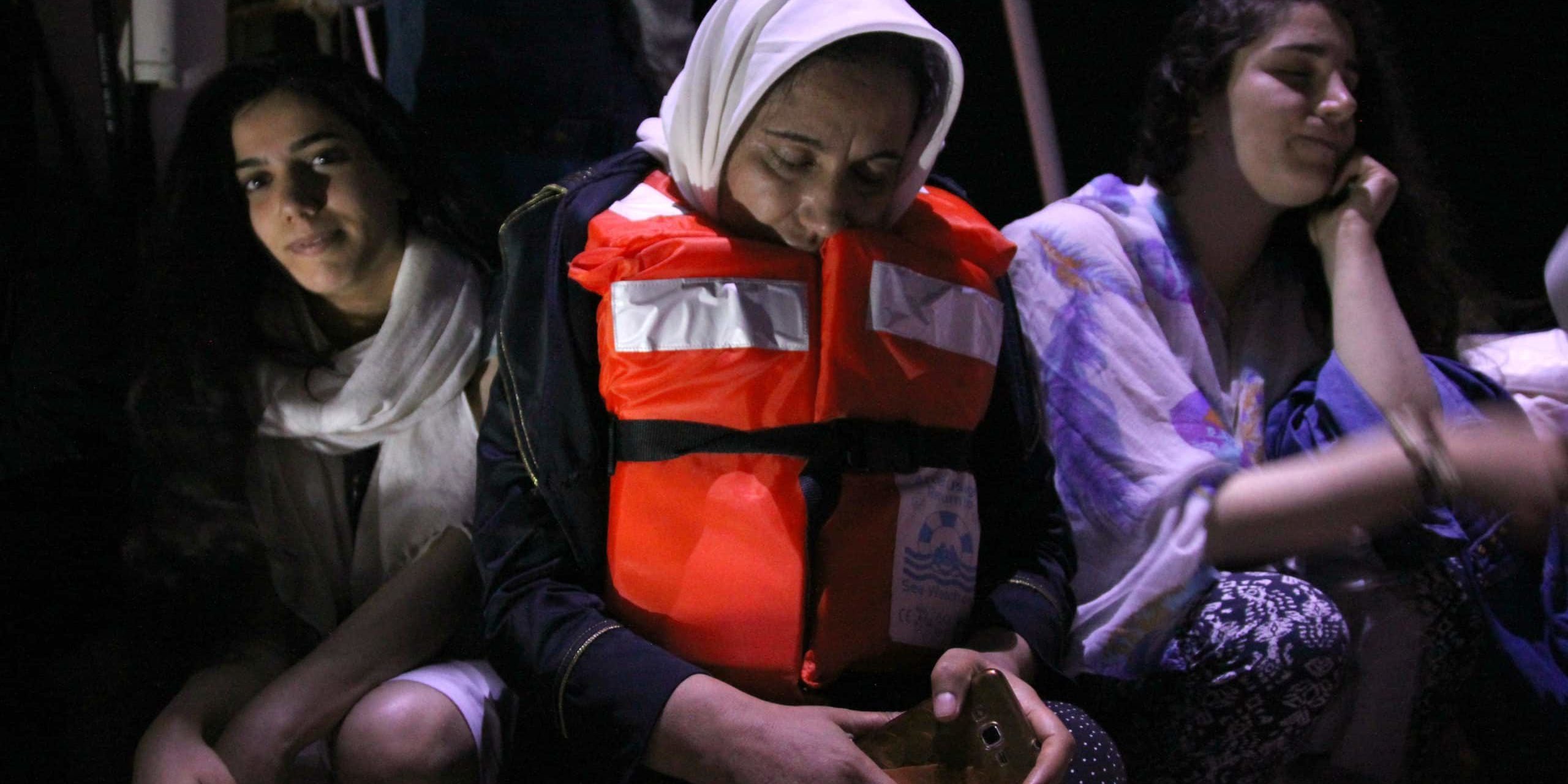+++BREAKING+++ Sea-Watch is called to rescue 27 refugees in the Aegean Sea
 Laila* was standing on the deck of the Sea-Watch 1, shivering. When boatdriver Ben took her hand, she didn’t let go. Laila has seen a lot more awful things than a German rescue ship in her life. But last night, she was scared to death again, when she was crossing the sea from Turkey to Greece. Together with her boyfriend, she left behind the war in Kobane, Syria. Everything she still carried with her from her past life fits into a pink bag.
Laila* was standing on the deck of the Sea-Watch 1, shivering. When boatdriver Ben took her hand, she didn’t let go. Laila has seen a lot more awful things than a German rescue ship in her life. But last night, she was scared to death again, when she was crossing the sea from Turkey to Greece. Together with her boyfriend, she left behind the war in Kobane, Syria. Everything she still carried with her from her past life fits into a pink bag.
At 2.30 am, Sea-Watch captain Phil had received an unusual call by the Greek coastguards in Kós: “Hello my friend, can you help us? Can you tug a refugee boat back to the harbor?” Since the start of the monitoring mission in the Aegean Sea, it seemed as though the Coast Guards did not appreciate the presence of NGOs in their waters. But for the Greek commander in Kós, it was a relief to be able to call the Sea-Watch crew for assistance. “This rescue was an important sign for us: Good cooperation with the authorities could always look like this”, Captain Phil says.
One hour later, 27 people from Syria and Iraq are sitting on the deck of the Sea-Watch 1. Two of them are Hiba and Fadia – two sisters from Damaskus. They sold their laptop and all their belongings to pay for the boat to Greece. “We only have our passports and the medicine for our mother with us”, Fadia says shyly. For three years now, their father has been living in Dortmund. All they want is to live with their family in a safe place again. “Turkey is no good place for us”, says the 26-year old Fadia, who wants to finish her Masters, when she arrives to Germany. If she arrives.
 On board of the Sea-Watch 1 the refugees tell us about the rumor that the Turkish president Recep Tayyip Erdogan wants to put pressure on the EU by letting more boats pass the border to Europe. In fact, Turkish government representatives complained about a lack of support from Europe after the EU-Turkey-Deal. What is for sure: The numbers of migrants arriving at the Greek islands has drastically increased during the last weeks. In the dawn, all passengers were brought to a camp in the centre of the island. But the asylum system of Europe works slowly: It can take months until Fadia and Hiba know, when they will see their father again. But at this moment, the most important thing is that they survived: „Thank you Sea-Watch“ they call, waving their hands.
On board of the Sea-Watch 1 the refugees tell us about the rumor that the Turkish president Recep Tayyip Erdogan wants to put pressure on the EU by letting more boats pass the border to Europe. In fact, Turkish government representatives complained about a lack of support from Europe after the EU-Turkey-Deal. What is for sure: The numbers of migrants arriving at the Greek islands has drastically increased during the last weeks. In the dawn, all passengers were brought to a camp in the centre of the island. But the asylum system of Europe works slowly: It can take months until Fadia and Hiba know, when they will see their father again. But at this moment, the most important thing is that they survived: „Thank you Sea-Watch“ they call, waving their hands.
*Laila is scared. Of bombs. Of crossing the sea at night. And of publishing her name before her asylum status is confirmed. She would not need to be afraid, if there was a #SafePassage to Europe.
Text and Photos: Theresa Leisgang











